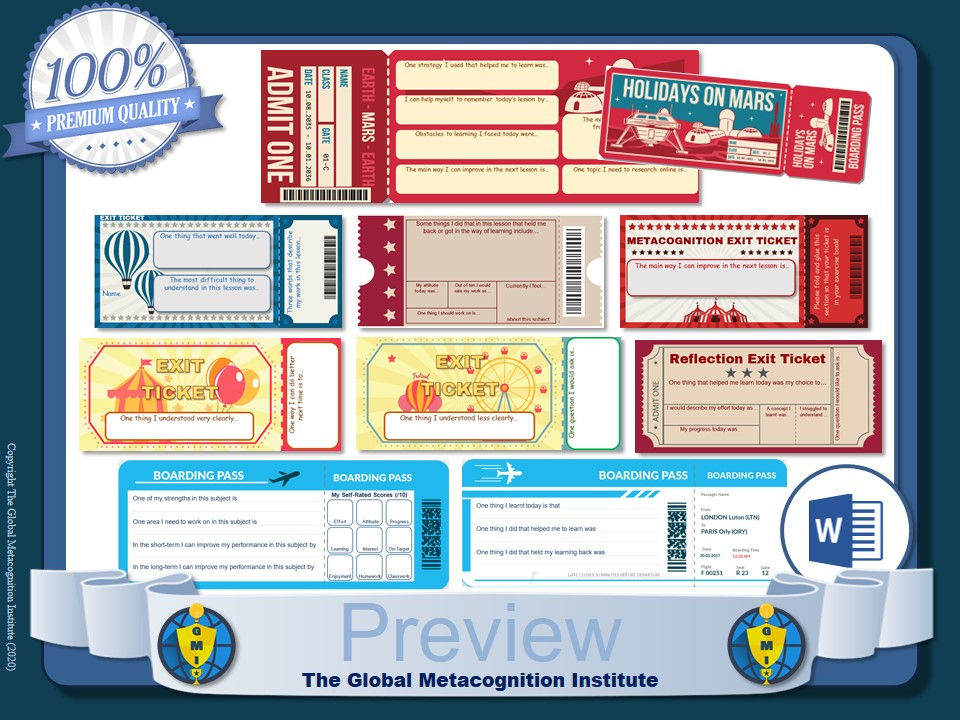With so many amazing educational videos scattered across the internet the first challenge is finding the best ones and the second is helping students get as much as possible from them! Using metacognitive questioning before and after the videos you show is a straightforward way of triggering metacognitive reflection and metacognitive awareness.
If videos are more lengthily, it can also be wise to pause the video and take a few minutes to stimulate metacognition so that students can better monitor, evaluate and regulate their learning.
Metacognition (the cognitive aspect of the self-regulated learning cycle) involves learners planning, monitoring, evaluating and regulating their approach to learning: the simple three-stage approach is an ideal way of connecting metacognitive thinking to the process of learning from videos and documentaries in your lessons.
We’ve created a simple PowerPoint tool that will facilitate your delivery of metacognitive questions in lessons whenever you use a video: regardless of the school subject or videos topic. It allows you to instantly generate metacognitive questions for each stage of the metacognition process using an integrated menu:

Student are then presented with one of thirty-six slides like the ones depicted below, each contained 3 of 108 questions aiming to trigger metacognitive reflection, awareness and knowledge:
You can download a free sample of the resource here – it’s perfectly easy to use in your lessons and requires no preparation. The demo version contains 6/36 slides (18/108 questions).
The full version contains the complete array of 108 questions and access to all 36 slides: this makes the resource almost infinitely reusable. Furthermore, unlike the demo version, the full version is fully editable so that teachers can add their own metacognitive questions. Click here to download the full version. If you are a membership plan holder please visit the Members Area to download it for free.
All in all, this is a great way to bring metacognition into your lessons: one final benefit to consider is that the young people you work with have a life-time of learning from videos ahead of them – the metacognitive skills you develop in them by using this resource (or simply using your own metacognitive questions in lessons) will serve them for the rest of their lives.

























































Comments